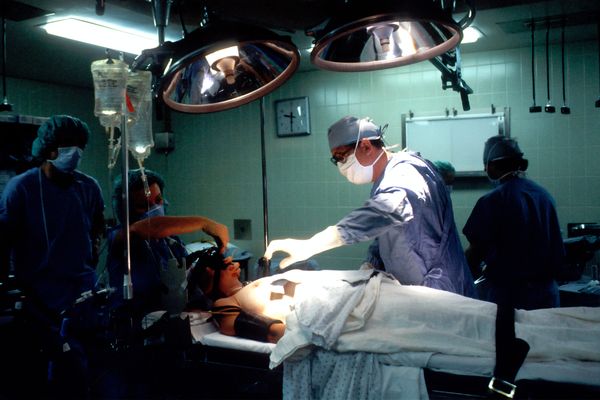In order to expand our knowledge in the field of medicine, research is imperative. However, the role of ethics is as important as ever when considering research. Medical anthropology explores the role of ethics in several aspects of the medical world. Ethics are considered from a doctor-patient perspective when discussing treatment for patients, preventative and curative methods as well as bedside manner. Furthermore, ethics are key in regards to the role of the patients and society when considering the role pharmaceutical companies play in medicine as well as cultural beliefs and practices. When considering research on reproduction there are certain questions that we must keep in mind. How must patients remain in control of critical decisions? How do patients risk exploitation and how can they be safeguarded? How should agreement or consensus on ethics be reached and how can they be ensured?
Rebecca Skloot discusses the origin of the first immortal human cells in "The Immortal Life of Henrietta Lacks". Skloot describes the story of Henrietta Lacks and her significance in the scientific world. Henrietta Lacks was an African American woman who passed away due to cervical cancer in the early 1950s. She became the involuntary donor of cells from her cancerous tumor which was biopsied during her treatment at the John Hopkins Hospital in Baltimore. Since the time of her death, Henrietta’s cells have been known to be the world’s first immortal cells as well as the world’s first replicated immortal cells. They have been used by researchers worldwide to make breakthroughs in diseases such as cancer and polio. While interviewing Henrietta’s daughter Deborah, Skloot finds out the family's views on the situation. Deborah describes how whenever she visits the doctor she tells them her mother was HeLa (the code name for Henrietta’s cells in the medical world). She is always treated well and is told of how science has benefitted from her mother’s cells. Yet there is a strange twist to it all. Deborah states how she always found it strange that if her mother’s cells have done so much for the field of medicine how come her family cannot afford to see doctors? The irony is tragic. Doctors reap in benefits from her mother’s cells while her own family does not have a dime to their name.
Just because doctors are still using an initial sample of HeLa does that mean they can exclude the family of research decisions? Isn’t the family entitled to any profit the doctors and researchers may get?
In "Native American DNA" by Kim Tallbear, Tallbear aims to offer us with some answers to these questions. Tallbear discusses the concept of consent regarding the use of the DNA of Native Americans for research purposes. With over fifty years of biomedical research, tribal people have contributed nearly half a million specimens to scientific study. Tallbear stresses the importance of consent in such situations. Tallbear calls for collaboration between legal institutions and the tribal court systems in order to establish a more effective governance structure which is not damaging to tribal interests. Furthermore, Tallbear calls for the better development of tribal institutional review boards which review and set conditions for research on tribal lands. The concept of DNA-on-loan is also discussed which is when the researcher is given a temporary sample of blood/tissue to examine. However, in order for real change to occur it will take more than legal institutions making fundamental changes. Unfortunately, scientists are reluctant to relinquish their power. Tallbear states that “while scientists should not allow particular tribal organizations to yield veto power over scientific studies, it would behoove us to consult with them as much as possible.” It will be a slow process, but at least it is taking a step in the right direction.
Medical anthropology adds a layer of depth to this situation. It provides a humanistic slant to the practice of medicine. Anonymously taking people’s DNA for research purposes is easy, however once you put a name to a face as well as a attach a story to a name it is difficult to distance yourself from the situation. Medical anthropology narrates those stories and puts faces to DNA samples such as in the case of Henrietta and her daughter Deborah. In order for real change to occur which will ultimately transform the landscape of genomics research and justice for research subjects, educational programs must be administered in order to reconfigure techno-scientific ethics across disciplines such as the natural and social sciences as well as the humanities and engineering.





















